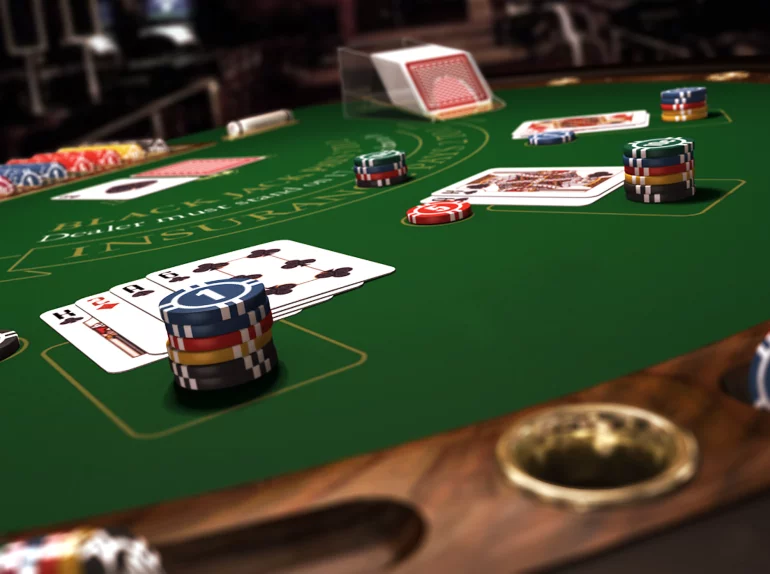
In most varieties of blackjack, the dealer must take another card if he has sixteen or fewer points, and stand on seventeen or more. This is a traditional rule, usually specified directly on the markup table. However, in some versions of the game, croupiers stand only on "hard" seventeen, and on "soft" (with an ace, regarded as eleven), they hit.
What to Do with It?
Many inexperienced blackjack players don't use this rule, considering it insignificant. Some do not even realize that it is in favor of the casino. But we do not recommend that you be careless.
On the one hand, if the dealer hits a card on "soft" seventeen, he will bust more often. On the other, it will be increase more powerful hands to his win. As a result, this "insignificant" deviation from the classical mathematical provisions increases the house advantage over a player by 0.2%.
What advice can we give to those who are going to play blackjack with a side panel on the card "soft" seventeen?
The top tip is to give it up and find a game with generally accepted rules.
But we understand that this option is not always available. Additionally, there are versions of blackjack that are balanced by a similar lack of some beneficial aspects for the player.
Blackjack Strategy Tips
So, if you play blackjack with six decks (we'll talk about one deck below when the dealer draws a card to "soft" seventeen, you need to make the following changes in the basic strategy:
- Double ace with a seven ("soft" eighteen) at two of a dealer.
- Double ace with eight ("soft" nineteen) at six of a dealer.
- Double eleven when a dealer has an ace.
In all these situations, the basic strategy recommends standing.
Many casinos in Reno and Las Vegas, as well as some online casinos, use a single deck in blackjack, which is much more profitable for the customer than the game with several decks. In such games, the casino restores its advantage by the fact that the dealer will hit on "soft" seventeen. But even in this case, this blackjack is better than the one with several decks.
Blackjack Odds
The following table will help you understand the casino mathematical advantage in changing various rules, if you play strictly by the optimal strategy.
- Six decks, dealer hits on "soft" 17, a double after split - 0.63%
- Six decks, dealer stands on 17, a double after split - 0.41%
- One deck, the dealer hits "soft" 17, no doubles after split - 0.18%
- One deck, the dealer hits on "soft" 17, a double after split - 0.06%
- One deck, the dealer stands on 17, no doubles after split - 0.01% (the advantage of a player)
- One deck, the dealer stands on 17, a double after split - 0.13% (the advantage of a player)
As you can see, this rule is so bad for gamblers. If the casino offers blackjack with a single deck without this rule, it allows players to get a mathematical advantage, so this version may be difficult to find.
| Name | Soft | Return to player | ||
|
|
99.78% | |||
|
|
99.71% | |||
|
|
99.7% | |||
|
|
99.69% | |||
|
|
99.65% | |||
|
|
99.6% | |||
|
|
99.59% | |||
|
|
99.54% | |||
|
|
99.54% | |||
|
|
99.54% |
Conclusion
In general, we recommend that you carefully study the information on how various points of the rules affect the house edge in blackjack. Such information can be found in the Casinoz section, which features articles devoted to this game.

































